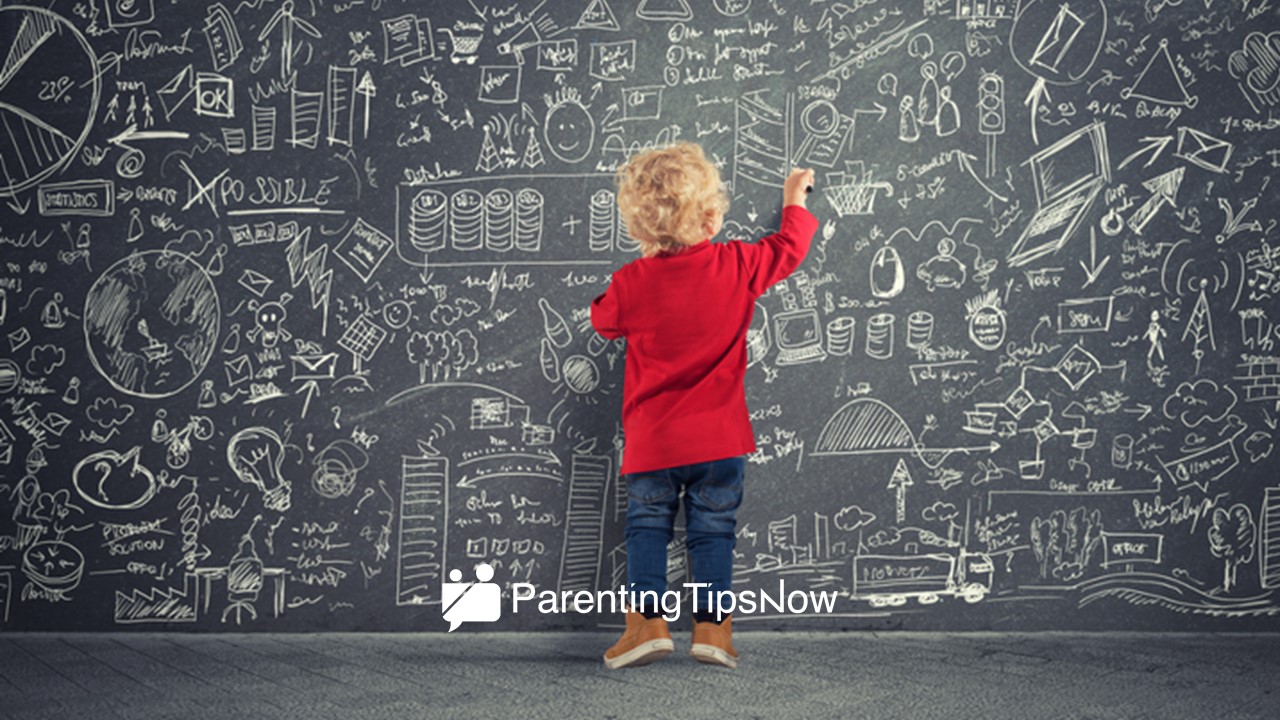Table of Contents
ToggleDiscover how to maximize the potential of gifted kids and help them reach their full academic and personal potential. Learn the strategies that will get your gifted child the best results possible!
Gifted kids are those who show exceptional ability or potential in an academic, intellectual, creative, or artistic field. Nurturing these gifted students can help them reach their full potential and lead them to success. Exploring the benefits of nurturing gifted kids is essential for providing the best opportunities for these students. This article will examine how offering support and specialized instruction to gifted children can create a stimulating learning environment that encourages their growth and development.
Nurturing Gifted Kids
Nurturing gifted kids is an important part of ensuring they reach their full potential. Parents of gifted children have the unique responsibility of encouraging and supporting their child’s development while also providing them with guidance to help them achieve success.
Gifted kids often have a range of special needs that must be addressed in order for them to flourish. Parents must understand the specific needs of their gifted child and work with teachers, counselors, and other professionals to provide specialized instruction and support. It’s essential for parents to create an environment where their child feels valued, respected, and supported in order for them to excel academically as well as socially.
Parents should ensure that there are ample opportunities available for self-exploration; this could take the form of extracurricular activities such as music or art classes or sports teams.

Definition of Gifted Kids
Gifted kids are those students who possess exceptional intelligence and academic skills. They demonstrate extraordinary ability in some areas of study or talent in certain activities that require advanced levels of thinking. Gifted kids often have impressive memories, excellent problem-solving abilities, and the capacity to grasp complex subjects quickly.
However, giftedness is not simply a measure of IQ scores. It also involves creativity, curiosity and a commitment to seeking knowledge as well as social and emotional skills beyond what is typically seen in a child’s age group. Gifted kids may think outside the box when problem-solving and come up with innovative solutions not easily imagined by their peers or teachers. They often show an intense interest in specific topics outside the scope of their schooling, such as art or music, which can lead to remarkable achievements at early ages.
Early Years For Gifted Kids
In the early years of childhood, gifted kids need special attention and care to ensure their emotional, intellectual, and physical development. Stimulation and challenge are key components in providing these children with an environment that will help them reach their highest potential.
Early learning experiences should combine unique elements such as problem-solving activities, creative projects, and opportunities for self-expression. Gifted children have a natural curiosity that needs to be nurtured through exploration and discovery. Parents should provide meaningful tasks that stimulate their child’s intellect while also helping them develop important skills like critical thinking and reasoning.
Gifted kids also require challenging yet age-appropriate educational materials to keep them engaged in learning. Fun activities such as board games or interactive apps can provide stimulating mental challenges for young minds while promoting social interaction with peers or family members.
School Situation For Gifted Kids
Schools are increasingly starting to recognize the need for individualized learning plans for gifted kids. These students are highly intelligent but often require different types of instruction in order to reach their full potential. Individualized learning allows educators to tailor lessons and activities to the unique needs and interests of each student, giving them the opportunity to excel and grow in ways that traditional classrooms cannot offer.
For example, with an individualized approach, teachers can create specialized work or research projects that allow gifted students to explore topics more deeply than a typical curriculum might provide. In addition, advanced courses could be taken at a faster pace or even at another school or college level if necessary. Students could also have access to special clubs and activities related directly to their interests that would help foster personal growth and engagement beyond the classroom.
Extracurricular Activities For Gifted Kids
Extracurricular activities for gifted kids have become increasingly important in fostering their interests and developing social and emotional skills. Giftedness can manifest itself in a variety of ways, from advanced academic abilities to impressive artistic talents, making it challenging for parents to find the right extracurriculars that will help their children reach their potential. By engaging in specialized activities designed especially for these students, they can learn how to manage their special gifts more effectively while having fun along the way.
The right enrichment program can also provide an environment where gifted children develop relationships with other like-minded peers who understand and appreciate their special abilities. By taking part in activities tailored to them, they are encouraged to embrace what makes them unique while exploring activities outside of the classroom that may otherwise be overlooked.
Social Life Of Gifted Kids
Making friends as gifted kids can be difficult, but it is an important part of social development that should not be overlooked. In general, gifted children are often seen as being more mature and advanced compared to their peers and may find it hard to relate to them on a social level. They also may have difficulty expressing their thoughts or feelings in the same way as other kids their age.
It is, therefore, essential for gifted children to learn how to navigate the complexities of making and maintaining friendships with other kids their own age. This may include learning how to compromise when making decisions, effectively communicating feelings, and knowing when it is appropriate to speak up or back off from conversations. Parents can help by teaching these skills through positive reinforcement and role-playing activities so that their children can practice interacting with others in real-world situations.
Gifted Kids Emotional Benefits
Gifted kids often have a unique set of emotional needs that can be difficult for many parents to understand. These children are highly intelligent and creative and often possess an intuitive understanding of the world around them. As such, providing them with the right emotional support can help foster healthy development and socialization skills.
In addition to working with gifted children on developing their intellectual gifts, parents also need to focus on creating strong emotional foundations in order to maximize their children’s potential. This includes teaching kids self-regulation techniques as well as helping them discover positive ways to express themselves and build relationships with others. Emotional intelligence plays a major role in how gifted children interact with the world, and it is important for parents to recognize this fact when working with their child’s wellbeing.
Gifted Kids Cognitive Benefits
Gifted kids have the potential to be a major asset in society. They have several cognitive benefits which can help them excel in the classroom, as well as in their social circles, and it is important for parents and teachers to recognize these benefits.
Gifted children process information quickly, making them great problem solvers. They also have higher concentrations of creativity and critical thinking skills than other children, enabling them to come up with unique solutions. Furthermore, due to their more advanced understanding of concepts, they are able to think abstractly about topics and explore potential applications of knowledge that may not be apparent to others.
In addition, gifted students often possess an innate curiosity that drives them to learn more deeply; this allows them access to deeper-level learning than is typically expected at their grade level.
Gifted Kids Social Benefits
Gifted kids have unique social experiences that can often be overlooked. It is well-documented that gifted children are more likely to succeed academically, but their social benefits should not be ignored. Various studies have found that having a group of peers with similar intellectual abilities can lead to an increase in self-esteem and confidence for these children.
Gifted kids often develop deeper relationships due to their advanced ability to think abstractly and appreciate complex ideas. This may result in stronger communication skills, as they are able to express themselves better than their peers who are not gifted. Additionally, the opportunity for friendships with other like-minded individuals allows gifted kids a sense of belonging within the community which can lead to increased feelings of security and safety within the environment they live in.
Gifted Kids Potential Challenges
Gifted kids often come with a unique set of challenges and potential roadblocks that can make their journey difficult. For parents, it is important to be aware of these challenges, so they can take the right steps to ensure their child’s success.
One common challenge for gifted children is feeling isolated or misunderstood by peers who are not on the same level. Additionally, gifted kids may struggle in traditional classrooms where learning is limited to one pace and style that may not fit their individual needs. This can lead to boredom and frustration, which, if left unchecked, could have a negative effect on their education experience and self-esteem.
Parents of gifted kids need to be aware that patience, understanding, and proper guidance are essential in helping them navigate these hurdles while still allowing them room to grow as individuals.

Gifted Kids Parental Role
Gifted kids are a unique group of children who possess extraordinary talents, skills, and interests. As parents of gifted children, it is essential that they understand their role in helping develop their child’s potential and be able to recognize the signs of being gifted. It is important for parents to be aware of the social and emotional needs that come with this talent and how best to support them.
One way for parents to do this is by providing an environment where these talents can blossom. This could include creating opportunities for exploration and growth through activities such as extracurricular classes or clubs in areas such as music or technology. Additionally, they should look out for any signs that their child may need additional help coping with issues related to being “different” from other kids their age due to possessing more advanced skills or knowledge than those around them.
Final Thoughts: Maximizing Gifted Kids Potential
In conclusion, maximizing the potential of gifted kids is a difficult but rewarding endeavor. It requires time, energy, and dedication from both parents and educators to provide the best opportunities for these unique students. Through proper instruction, resources, and support networks, gifted children can be equipped with the skills to reach their full potential and become productive members of society. Parents and teachers should work together to ensure that gifted children have the necessary tools to strive for success.
















